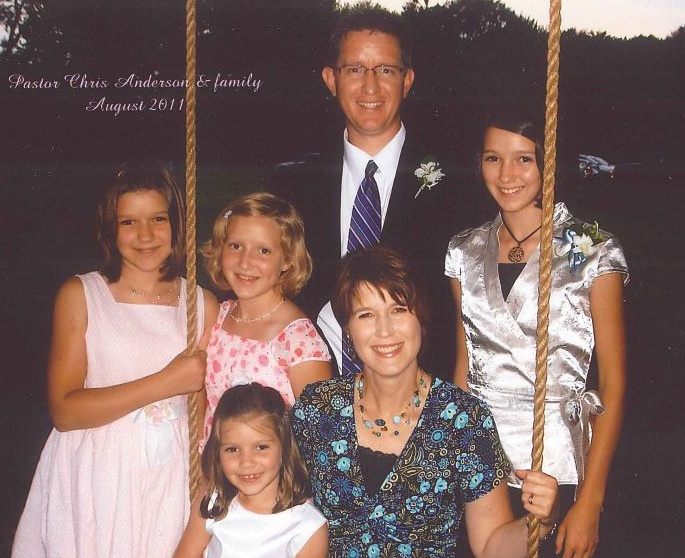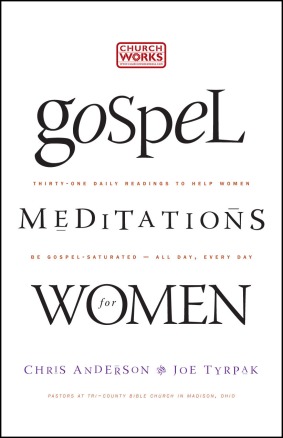A brouhaha has been raging over here for a while. It’s a discussion of whether or not the church has a corporate mandate to minister to the physical needs of the unsaved. Though I’m still sorting through the implications of the discussion in my own ministry, I’ve been very nearly persuaded by Dr. Doran’s remarks on the topic: “Almost thou (and thy graduates in Ohio) persuadest me.” I’ll present his points as I understand them (and somewhere he is wincing):
- The mandate of the NT church is the Great Commission: evangelism, edification and church planting.
- The benevolence ministry of the corporate body is focused on care for the saints as commanded in the New Testament and exemplified by the early church.
- The responsibility to “do good unto all men” is certainly biblical and binding, but it is the responsibility of the individual believer, not the corporate body.
Read his posts on the other thread if you want more particulars. I’m sure he’d rather not have me as a spokesman. At any rate, I see it. I concede. “Uncle.” I’m still working on exactly what that means (e.g. does lack of a “mandate” necessarily mean that such corporate efforts are illegitimate?), but the three points listed above make sense and have biblical backing.
Now, after several days of debate on the issue, I was eager to move on to other things today. So I start reading Getting the Gospel Right by R.C. Sproul. Oops. He discusses the church & social action twice in the first forty pages.
In the first quotation, Sproul is explaining the change in meaning that the term evangelical underwent due to the break between liberals and fundamentalists (evangelicals):
“This change in the popular usage of the term evangelical came about in large part due to the crisis precipitated in the nineteenth century by the advent of liberalism….By the ‘gospel’ liberals meant ethical values, and they saw the church’s mission in terms of sociological and political ‘redemption.’ What emerged was the so-called Social Gospel, which advocated the humanitarian concern of working for a kingdom of God on earth that focuses on ethical values. The idea of personal reconciliation to God wrought by supernatural atonement and the regenerating inward work of God the Holy Spirit was eclipsed” (p. 36).
In the second quotation, Sproul is discussing the change in meaning that the term evangelical underwent due to the break between new evangelicals and fundamentalists:
“In some circles the task of evangelism became so emphasized that social concern was first neglected and then repudiated. To distance themselves from liberalism, many well-meaning Evangelicals began to suspect the legitimacy of the church’s involvement in social issues. Since liberals reduced the church’s mission to social concerns and eliminated personal evangelism, some were so zealous to promote evangelism that they began to view evangelism and social concern as an either/or dichotomy.
“This dichotomy produced a rift within Evangelicalism between ‘left-wing’ and ‘right-wing’ Evangelicals. The ‘left-wing’ insisted (correctly) that the relationship between personal evangelism and social concern is not either/or but both/and. The twentieth-century dichotomy between personal evangelism and social concern represented a somewhat bizarre departure from historic Christianity. For two millennial the church had understood her mission as involving both the proclamation of the gospel and the care of the poor, the widowed, the orphaned, the oppressed, and so forth. Only in reaction to liberalism did this anomaly emerge” (pp. 39-40).
Interesting. He neglects other issues that cause “the rift,” but that’s beside the point. What I’m wondering, in light of the recent conversation on the topic here, is this: how does he view the church’s involvement in social action?
He obviously includes the lost as the objects of Christian benevolence. But does he see it as a corporate mandate? He speaks of “personal evangelism and social concern,” which could indicate that he sees both as personal (not corporate) duties. On the other hand–and more importantly, I think–he speaks of “the church’s involvement in social issues,” which seems to indicate that he’s talking about a corporate mandate. If that’s the case, I’m wondering what causes him to tilt that way, especially since his statement that “personal evangelism and social concern is…both/and” seems to be at odds with His reformed soteriology. (See McCune’s Promise Unfulfilled, p. 272-274; HT: Dan Greenfield.)
This much is sure: the question of the church’s involvement in social causes isn’t simply a study in recent church history; it has everything to do with a correct philosophy of ministry today. And in light of conferences & discussions on the topic among fundamentalists in recent years, I wager that we’ll hear more about it, not less, in the coming days.
It’s enough to make a fella say “Déjà vu!”
Filed under: Contemporary Issues, Fundamentalism, Ministry Musings, Notable Quotes |










Why on earth do you think his statement seems at odds with his reformed soteriology?
Sproul is saying, far better and more effectively of course, what I’ve been trying to say. He’s saying what Chalmers would say, what Kuyper would say, what Schaeffer would say, etc, etc. It’s completely reforemed.
It’s also completely reformed
Chris,
I think your last full paragraph really hits the nail. Criticism of seeker and emerging churches and their philosophies/theologies of ministry is doing a couple things, at least as I see it:
1) It’s forcing the evangelical-fundamentalist who criticize seekers and emergings to articulate a more biblical way of proclaiming the gospel, preferably something that is effective (yes, I realize that “effective” is not equivalent to “right,” but surely it’s not unacceptable to apply biblical wisdom so that we do not introduce obstacles to our message that are not already innate to the message itself).
2) It’s revealing how professing fundamentalist churches have unwittingly adopted some of the strategies of seekers and emergings, even if the fundamentalist form of those strategies is different.
Keith,
My point about what you called “mercy ministry evangelism” here is that the idea that our doing something–anything–to make an inroad for the Gospel or to make it more acceptable to the hearer doesn’t seem to jive with reformed soteriology. I understand that social activism may fit well with reformed theology (CT) in general, especially with their understanding of the OT, but it seems at odds with reformed soteriology.
As I indicated, McCune explains this better than I can. Perhaps someone with access to his book can explain or quote his point on pre-evangelism fitting better with Arminian theology?
That said, I’m not familiar enough with Sproul’s perspective on benevolence to know if he’s saying the church should do it because it’s the right thing to do or because it’s some sort of complement to our Gospel message. I’m not meaning to put words in his mouth.
From what I can tell, we should seek opportunities to perform deeds of general beneficence (whether individually and corporately) for those outside the faith simply because by doing so, we fulfill the command to imitate our Father in heaven. He bestows good things on those who are his enemies (and may continue to be) simply because of who he is. As his children, we are commanded to imitate his character (Matt 7:42-48); whether the activities that result from our imitation result in successful evangelistic effort is immaterial.
The specific activities that result from our attempts to imitate our Father should not be confused with a specific corporate mandate. We cannot provide rain or sunshine, so the specific activities that God is performing are not part of the command. The command is to imitate the character of God. It is not a command to fund relief efforts, build a crisis pregnancy center, or help the homeless. But these specific activities are all potential ways to reflect the ways that God loves and cares for all mankind. God’s offer of salvation is (of course) his greatest gift, and it is this message that he has specifically mandated his church to broadcast.
However, I also concur with Dr. Doran’s earlier sentiments (as I understand them) that we as Christians are (1) often too eager to make every activity into a program, and that (2) history warns us that theological compromise frequently accompanies such efforts. Acts of general beneficence and evangelistic efforts have fallen prey to these problems. I certainly don’t need a program to engage in a every particular activity (evangelism or general beneficence), and very few activities should rise to the level of becoming a program (imo).
Finally, although the warning of Matt 6 addresses the public nature of the Pharisee’s alms and prayers, I don’t believe the proposed solution (give and pray in secret) is a command that good deeds must be purposefully sheltered from view. In fact, some passages assume that we will do good works that are observable to others, and others command it (Matt 5:46-16; 1 Tim 3:7; 1 Tim 5:10; Titus 2:7; James 3:13; 1 Pet 2:12). The warning appears to be with not just with how public the good works are, but with the intent, for which God will judge or reward us all. (Don–I think/hope that we are actually in agreement on this; I just wanted to frame the passages above that discuss the intended results of the public activities of a Christian).
Hi Ted, unless the good works are done anonymously, they will obviously be seen. I don’t think we should only do good works in ski masks! Rather, I think the prohibition is on CALLING ATTENTION to the good work. The person who calls attention to the good work could possibly be doing so with a pure motive — but who can tell? I think that is the Lord’s point. The Lord himself often told people to not tell anyone what he had done for them. I don’t think that was simply to keep the crowds down. (As if that was possible!)
I thought of something else in this discussion that perhaps should be pointed out. Chris says above, ‘I’ve been very nearly persuaded by the remarks of Dr. Doran on the topic.’ But… Chris, do you recall that before Dave weighed in, I was saying essentially the same things, but you were not at all persuaded? So are you persuaded by the weight of the Scriptures or the ‘weight’ of the man? I don’t say this assuming anything, but we all tend to be like the scribes and cite “Rabbi So and So” to give weight to our arguments. We like to say, ‘as the scholar xxx’ says… which bolsters our own point of view. (One of my professors at BJ said that the definition of scholar is “somebody who agrees with me”. I think that is pretty good.)
Perhaps I’m just stirring up trouble again! I don’t mean to. The Scriptures are our only authority. (I learned that from Dr. Moritz!)
Regards,
Don Johnson
Jer 33.3
Chris,
A couple quick thoughts: 1) I still can’t be sure exactly why you think pre-evangelism or mercy ministry evangelism is at odds with reformed soteriology. However, it seems like your thinking (or McCune’s?) is based on the same logic that claims evangelism is at odds with reformed soteriology — “Well, if the elect receive irrisitable grace, we don’t need to spread the word.” The problem, in either case, is a confusion of hyper-calvinism with calvinism. 2) More importantly, mercy ministry or social concern is not some gimmick (some “anything”) to get a hearing for or make palatable the gospel. It is the fruit of the gospel. It is obedience. Just like preaching the gospel is. Again, God doesn’t need us for either, but in His wisdom he decided to use us for both.
Ted,
That is a great comment. I agree completely.
It seemed to me, however, that Doran went farther than what you mention. I agree with the points you mention wholeheartedly — I’m no fan of silver bullet programs — but Doran seemed to rule out coroporate involvement in beneficence and allow it only for individuals. I may have missed something in the long list of comments, and if so, I apologize. If not, I can’t say I agree with that.
Don,
That definition of a scholar is pretty lame.
Clark Pinnock is definitely a scholar, but I don’t agree with him on much of anything. And, that’s just one example.
As if on cue, here’s SI’s lead article today:
Hey, Don. Easy, buddy. First, I think you should leave everybody’s “weight” out of it. Talk about an ad hominem argument!
Seriously now, I am referring particularly to some email correspondence I had with Dr. Doran, Dan Greenfield & Mark Perry in which some of my opinions were changed. I’m not bowing the knee to anybody. Kudos, though, for saying essentially the same thing.
Now that that’s settled, I’m wondering: how does your bringing that to my attention jive with your understanding of Matthew 6??
LOL. :D
Hi Chris,
I don’t get the joke, sorry! I’m a little dense today.
Keith, the point of the definition is to point out the all too human frailty of citing some well known name to bolster one’s own opinion. It is not intended to be a real definition of the term. The prof in question later left BJ and went to Masters, BTW.
Regards,
Don Johnson
Jer 33.3
The one book of Sproul’s that I have found hard to “get into” is called, “The Hunger for Significance”. I thought it might address your question. Here’s a bit from his chapter about the Dignity in the Church. He contrasts “Planning Church Programs to Bring in the People” and “Or Addressing Church Ministry to Needs of the People.” Those don’t sound altogether different, but what he means is that we shouldn’t create our church services to entice people to come into them. Instead, we should go to the unsaved where they are and talk to them about their real needs and what Christ has done for them. I get a little squirmish when I read this:
“I spoke with a youn Episcopalian preist who was assigned to a mission church in a depressed mill town in western Pennsylvania. He came to me asking how he could develop a program to bring growth to his small parish of 27 members.
“When he identified his church as a mission church, I leapt to the conclusion that it had only recently been organized. As we discussed the strategy of new church planting, I asked him how long the mission church had been there.
“I almost fell over when he replied, ‘About 70 years.’
“The young pastor looked at me and said, “Is there any way to get these people interested in the Church?”
Here’s the part that jarred me, as a fundamentalist who thinks icky places are icky and I don’t want to smell them:
…”You are also living in a community where there is enormous pain, where people are looking for someone who will care about them. The unemployment rate is staggering and the poverty level is severe.
“These are proud people, people who have labored in the..mills…and mines….They are not going to come crying to you about their pain. If you want to build a church you must go to them.
“Where will you find them? In three sites, you will find ready-made congregations who will respond to you, if you don’t play games with them. God to the bars, the union halls and the ethinc clubs, and you will find the unemployed congregated.
“Of course, they will be suspicious, but go where Jesus went and do what Jesus did and you will have your church. It may not be a rich church, but it will certainly be a vital one.”
From what I gather, Sproul isn’t that much of a social activist. He thinks the services of the church are for the church, and that evangelism is for the lost. He has a very high view of worship services: preaching as well as the liturgy.
It is interesting. While this ‘action plan’ is a plan for that small corporate body of believers, it is still something that individuals would go and do on their own, thus falling in-line with what Doran says.
Knowing what Sproul Jr. thinks about orphanages, widows, and all of that kind of thing, his ‘action-plans’ would probably fit Doran’s ideas as well. Jr. emphasizes the role of the family. If there is a young person that is orphaned, whether he is a believer or no, believers ought to be the first offering to help. Not to put the child up in a big church-owned orphanage, but to bring them in as one of their own children, to give them the proper family structure that they need.
This book by sproul, I think, is largely about how common grace works and how it doesn’t. That the orphaned are short-changed, so to speak, because they don’t have that structure that God ordained they should have, and through which they receive much grace.
I’m trying not to make many conclusions here, but I find it interesting that this is one more point at which there is a dichotomy of sorts created by the fundamentalist presuppositionalists that isn’t present in the non-presuppositionalists of the present or the past.